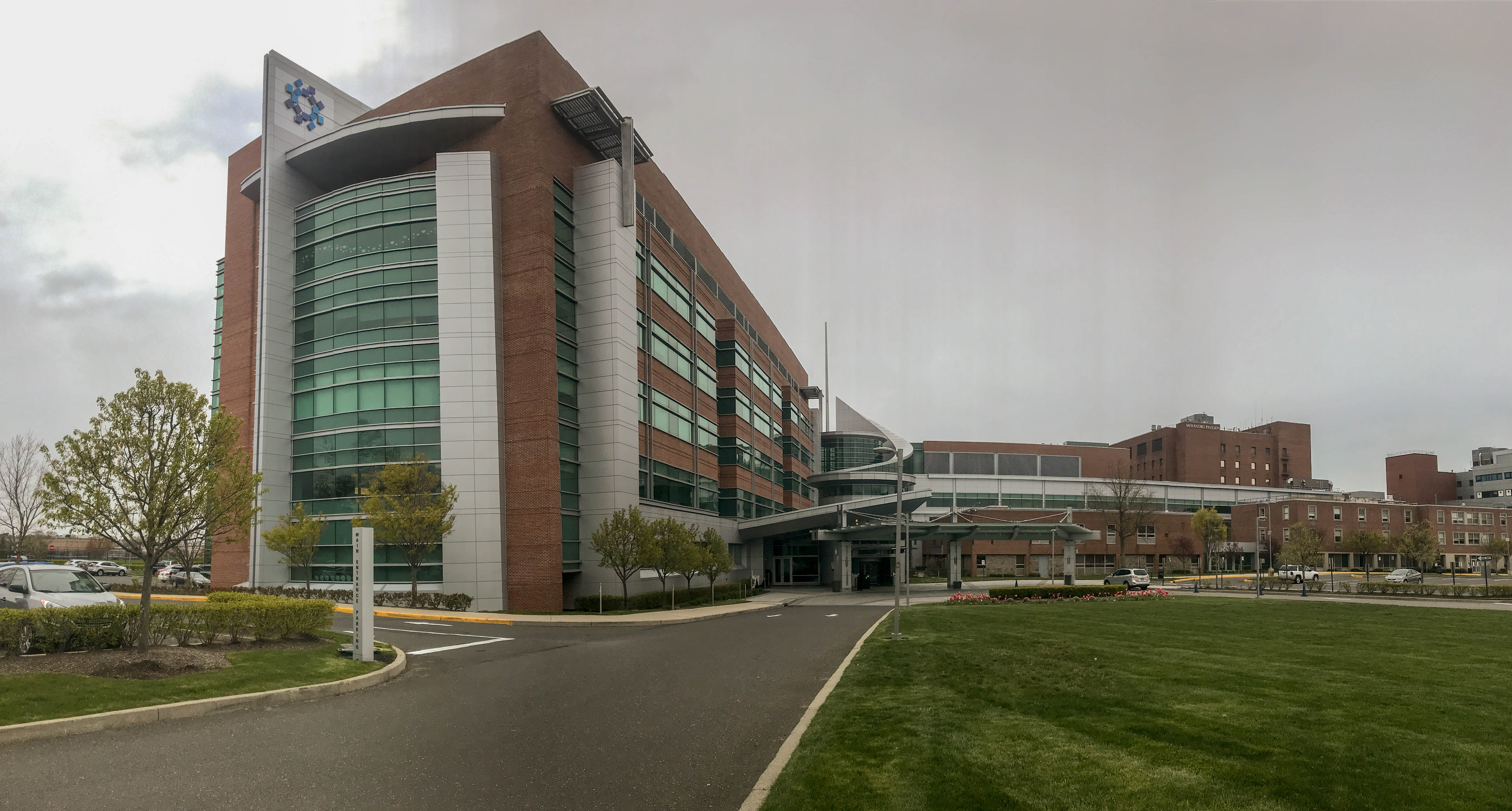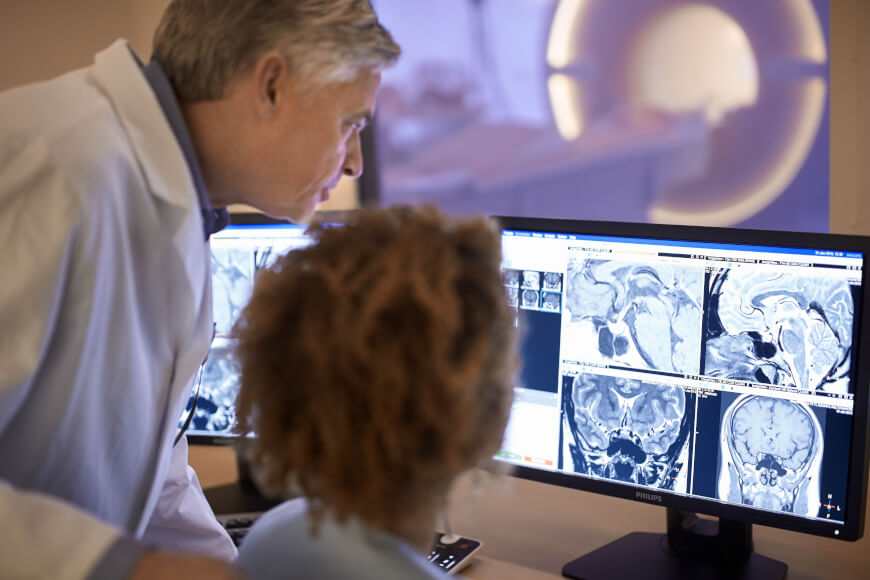|
Rutgers Medical School
Rutgers Robert Wood Johnson Medical School is a medical school of Rutgers University. It is one of the two graduate medical schools of Rutgers Biomedical and Health Sciences, together with New Jersey Medical School, and is closely aligned with Robert Wood Johnson University Hospital, the medical school's principal affiliate. Rutgers Robert Wood Johnson Medical School operates campuses in Piscataway Township, New Jersey, Piscataway and New Brunswick, New Jersey, New Brunswick in New Jersey. The medical school includes 20 basic science and clinical departments and a broad range of clinical programs conducted at its 34 hospital affiliates and numerous ambulatory care sites in the region. The school is named after Robert Wood Johnson II, the former president and chairman of the board of Johnson & Johnson. Prior to July 2013, Robert Wood Johnson Medical School was part of the University of Medicine and Dentistry of New Jersey (UMDNJ). In 2015-16 admissions cycle, the medical school ha ... [...More Info...] [...Related Items...] OR: [Wikipedia] [Google] [Baidu] |
Rutgers University
Rutgers University (; RU), officially Rutgers, The State University of New Jersey, is a Public university, public land-grant research university consisting of four campuses in New Jersey. Chartered in 1766, Rutgers was originally called Queen's College, and was affiliated with the Reformed Church in America, Dutch Reformed Church. It is the eighth-oldest college in the United States, the second-oldest in New Jersey (after Princeton University), and one of the nine U.S. colonial colleges that were chartered before the American Revolution.Stoeckel, Althea"Presidents, professors, and politics: the colonial colleges and the American revolution", ''Conspectus of History'' (1976) 1(3):45–56. In 1825, Queen's College was renamed Rutgers College in honor of Colonel Henry Rutgers, whose substantial gift to the school had stabilized its finances during a period of uncertainty. For most of its existence, Rutgers was a Private university, private liberal arts college but it has evolved int ... [...More Info...] [...Related Items...] OR: [Wikipedia] [Google] [Baidu] |
Neptune Township, New Jersey
Neptune Township is a township in Monmouth County, in the U.S. state of New Jersey. As of the 2020 U.S. census, the township's population was 28,061, an increase of 126 from the 2010 census enumeration of 27,935, in turn an increase of 245 (+0.9%) from the 27,690 counted in the 2000 census. Neptune was incorporated as a township by an act of the New Jersey Legislature on February 26, 1879, from portions of Ocean Township. Portions of the township were taken to form Neptune City (October 4, 1881), Bradley Beach (March 13, 1893) and Ocean Grove (April 5, 1920, until the action was found unconstitutional and restored to Neptune Township as of June 16, 1921).Snyder, John P''The Story of New Jersey's Civil Boundaries: 1606-1968'' Bureau of Geology and Topography; Trenton, New Jersey; 1969. p. 120. Accessed October 23, 2012. The township was named for Neptune, the Roman water deity, and its location on the Atlantic Ocean. Geography and climate According to the U.S. Census Bu ... [...More Info...] [...Related Items...] OR: [Wikipedia] [Google] [Baidu] |
Jersey Shore University Medical Center
Jersey Shore University Medical Center (JSUMC) is a 691-bed non-profit, tertiary research and academic medical center located in Neptune Township, New Jersey, servicing coastal New Jersey and the Central Jersey area. JSUMC is the region’s only university-level academic medical center. The hospital is part of the Hackensack Meridian Health Health System and is the system's second largest hospital. JSUMC is affiliated with the Robert Wood Johnson Medical School of Rutgers University, and Hackensack Meridian School of Medicine at Seton Hall University. JSUMC is also an ACS designated level II trauma center with a rooftop helipad handling medevac patients. Attached to the medical center is the K. Hovnanian Children's Hospital that treats infants, children, adolescents, and young adults up to the age of 21. JSUMC is listed as a major teaching and tertiary care hospital and has a staff of 127 interns and residents. It is a member of the Council of Teaching Hospitals and Health Syst ... [...More Info...] [...Related Items...] OR: [Wikipedia] [Google] [Baidu] |
Rutgers
Rutgers University (; RU), officially Rutgers, The State University of New Jersey, is a public land-grant research university consisting of four campuses in New Jersey. Chartered in 1766, Rutgers was originally called Queen's College, and was affiliated with the Dutch Reformed Church. It is the eighth-oldest college in the United States, the second-oldest in New Jersey (after Princeton University), and one of the nine U.S. colonial colleges that were chartered before the American Revolution.Stoeckel, Althea"Presidents, professors, and politics: the colonial colleges and the American revolution", ''Conspectus of History'' (1976) 1(3):45–56. In 1825, Queen's College was renamed Rutgers College in honor of Colonel Henry Rutgers, whose substantial gift to the school had stabilized its finances during a period of uncertainty. For most of its existence, Rutgers was a private liberal arts college but it has evolved into a coeducational public research university after being design ... [...More Info...] [...Related Items...] OR: [Wikipedia] [Google] [Baidu] |
Surgery
Surgery ''cheirourgikē'' (composed of χείρ, "hand", and ἔργον, "work"), via la, chirurgiae, meaning "hand work". is a medical specialty that uses operative manual and instrumental techniques on a person to investigate or treat a pathological condition such as a disease or injury, to help improve bodily function, appearance, or to repair unwanted ruptured areas. The act of performing surgery may be called a surgical procedure, operation, or simply "surgery". In this context, the verb "operate" means to perform surgery. The adjective surgical means pertaining to surgery; e.g. surgical instruments or surgical nurse. The person or subject on which the surgery is performed can be a person or an animal. A surgeon is a person who practices surgery and a surgeon's assistant is a person who practices surgical assistance. A surgical team is made up of the surgeon, the surgeon's assistant, an anaesthetist, a circulating nurse and a surgical technologist. Surgery usually spa ... [...More Info...] [...Related Items...] OR: [Wikipedia] [Google] [Baidu] |
Radiology
Radiology ( ) is the medical discipline that uses medical imaging to diagnose diseases and guide their treatment, within the bodies of humans and other animals. It began with radiography (which is why its name has a root referring to radiation), but today it includes all imaging modalities, including those that use no electromagnetic radiation (such as ultrasonography and magnetic resonance imaging), as well as others that do, such as computed tomography (CT), fluoroscopy, and nuclear medicine including positron emission tomography (PET). Interventional radiology is the performance of usually minimally invasive medical procedures with the guidance of imaging technologies such as those mentioned above. The modern practice of radiology involves several different healthcare professions working as a team. The radiologist is a medical doctor who has completed the appropriate post-graduate training and interprets medical images, communicates these findings to other physicians ... [...More Info...] [...Related Items...] OR: [Wikipedia] [Google] [Baidu] |
Psychiatry
Psychiatry is the medical specialty devoted to the diagnosis, prevention, and treatment of mental disorders. These include various maladaptations related to mood, behaviour, cognition, and perceptions. See glossary of psychiatry. Initial psychiatric assessment of a person typically begins with a case history and mental status examination. Physical examinations and psychological tests may be conducted. On occasion, neuroimaging or other neurophysiological techniques are used. Mental disorders are often diagnosed in accordance with clinical concepts listed in diagnostic manuals such as the ''International Classification of Diseases'' (ICD), edited and used by the World Health Organization (WHO) and the widely used '' Diagnostic and Statistical Manual of Mental Disorders'' (DSM), published by the American Psychiatric Association (APA). The fifth edition of the DSM (DSM-5) was published in May 2013 which re-organized the larger categories of various diseases and expanded upon the p ... [...More Info...] [...Related Items...] OR: [Wikipedia] [Google] [Baidu] |
Pediatrics
Pediatrics ( also spelled ''paediatrics'' or ''pædiatrics'') is the branch of medicine that involves the medical care of infants, children, adolescents, and young adults. In the United Kingdom, paediatrics covers many of their youth until the age of 18. The American Academy of Pediatrics recommends people seek pediatric care through the age of 21, but some pediatric subspecialists continue to care for adults up to 25. Worldwide age limits of pediatrics have been trending upward year after year. A medical doctor who specializes in this area is known as a pediatrician, or paediatrician. The word ''pediatrics'' and its cognates mean "healer of children," derived from the two Greek words: (''pais'' "child") and (''iatros'' "doctor, healer"). Pediatricians work in clinics, research centers, universities, general hospitals and children's hospitals, including those who practice pediatric subspecialties (e.g. neonatology requires resources available in a NICU). History The ear ... [...More Info...] [...Related Items...] OR: [Wikipedia] [Google] [Baidu] |
Pathology
Pathology is the study of the causes and effects of disease or injury. The word ''pathology'' also refers to the study of disease in general, incorporating a wide range of biology research fields and medical practices. However, when used in the context of modern medical treatment, the term is often used in a narrower fashion to refer to processes and tests that fall within the contemporary medical field of "general pathology", an area which includes a number of distinct but inter-related medical specialties that diagnose disease, mostly through analysis of tissue, cell, and body fluid samples. Idiomatically, "a pathology" may also refer to the predicted or actual progression of particular diseases (as in the statement "the many different forms of cancer have diverse pathologies", in which case a more proper choice of word would be " pathophysiologies"), and the affix ''pathy'' is sometimes used to indicate a state of disease in cases of both physical ailment (as in cardiomy ... [...More Info...] [...Related Items...] OR: [Wikipedia] [Google] [Baidu] |
Gynecology
Gynaecology or gynecology (see spelling differences) is the area of medicine that involves the treatment of women's diseases, especially those of the reproductive organs. It is often paired with the field of obstetrics, forming the combined area of obstetrics and gynecology (OB-GYN). The term comes from Greek and means "the science of women". Its counterpart is andrology, which deals with medical issues specific to the male reproductive system. Etymology The word "gynaecology" comes from the oblique stem (γυναικ-) of the Greek word γυνή (''gyne)'' semantically attached to "woman", and ''-logia'', with the semantic attachment "study". The word gynaecology in Kurdish means "jinekolojî", separated word as "jin-ekolojî", so the Kurdish "jin" called like "gyn" and means in Kurdish "woman". History Antiquity The Kahun Gynaecological Papyrus, dated to about 1800 BC, deals with gynaecological diseases, fertility, pregnancy, contraception, etc. The text is divided into th ... [...More Info...] [...Related Items...] OR: [Wikipedia] [Google] [Baidu] |



.jpg)



.jpg)